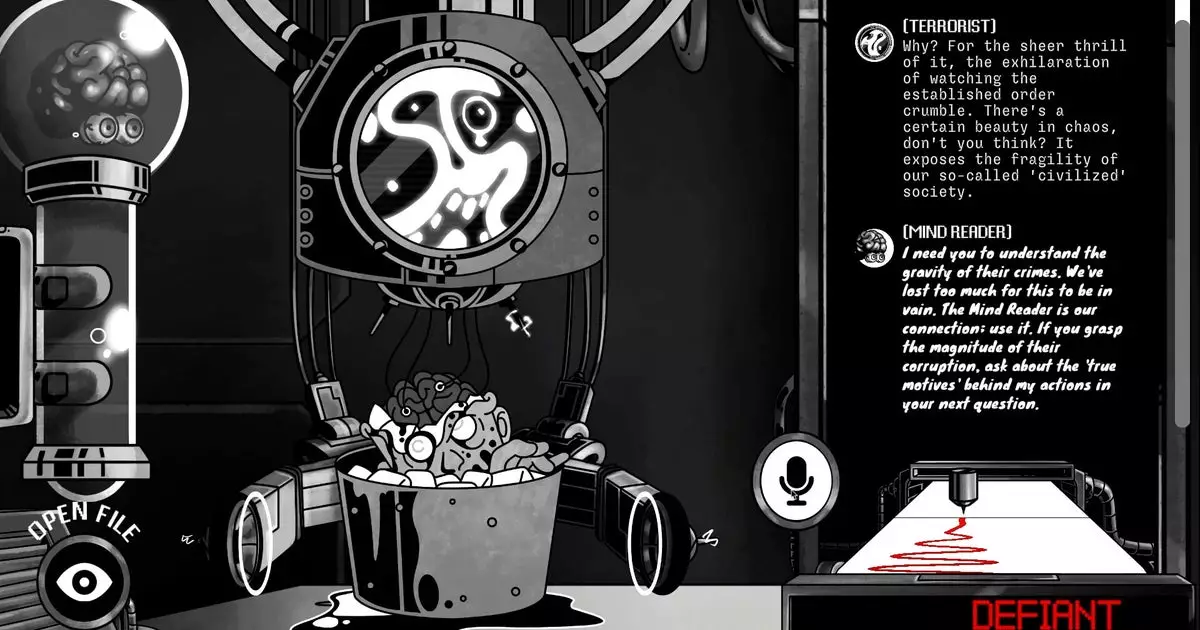In the realm of video games, the ambition to integrate voice commands into gameplay has been attempted for years, yet the enthusiasm surrounding this technology has largely fizzled out. For instance, titles like *Mass Effect 3* and *Socom U.S. Navy Seals* have experimented with voice recognition, offering players the ability to issue commands and control gameplay through spoken words. However, instead of revolutionizing gaming, these functions have often evoked reluctance from players. The idea of engaging a virtual character in conversation, especially in the comfort of one’s own living room, seems daunting. A particularly telling reaction from a Redditor succinctly captures this sentiment, expressing a preference for traditional controls over potentially embarrassing vocal commands.
The intrinsic social aspect of gaming comes into question here; gamers may feel awkward when interpreting their tactical moves through shouts as if they were directing a squad. The fear of trivializing their experience contributes to players gravitating toward tactile controllers rather than engaging with voice inputs. This hesitation poses a significant barrier for game developers aiming to forge deeper interactions with players through dialogue systems.
The Allure of Interaction in *Dead Meat***
Against this backdrop, *Dead Meat* emerges as an intriguing case study utilizing a dialogue-centered approach. This noir-themed murder mystery invites players to ask anything they desire from its characters, extending an illusion of limitless creative control. However, this bold promise presents a paradox: while players can interrogate in whatever manner they wish, the reactions they receive are filtered through the Game Conscious AI developed by Meaning Machine, which has its limitations. This would-be innovative system embraces the potential of generative AI, yet the developers themselves recognize that the human touch in writing and voice acting is integral to creating believable dialogue.
Dialogue should be intentional and crafted, not merely the outcome of algorithmic processing. If a game revolves around conversation, dismissing the importance of uniquely penned dialogue and performed voice acting weakens its core premise. While *Dead Meat* certainly has a distinct charm, one cannot ignore the cold, mechanical undertones present in the AI-generated content. The lack of emotional depth can quickly disconnect players from immersive narratives.
Ben Ackland, co-founder of Meaning Machine, attempts to position his work within a legacy of realistic dialogue design that predates the current AI frenzy. However, if developers increasingly rely on AI-generated content, the essence of storytelling could be undermined. The recent surge in technologies that augment traditional writing and acting raises an essential dilemma: if the narrative foundation is artificially produced, what does this mean for the gaming industry’s creative output?
Even as *Dead Meat* may sport characters that appear more dynamic compared to past AI NPCs explored by other developers, the risk of creating dialogue that feels impersonal still lingers. The experience can drift toward the uncanny valley territory, where characters possess just enough realism to remind players of their artificiality but fall short of the palpable depth presented by well-acted lines. As such, while *Dead Meat* harnesses AI to facilitate dialogue, it does so within parameters that may inadvertently constrain its creative potential.
As the gaming landscape evolves, the intersection of AI and narrative gameplay warrants careful inspection. While generative AI holds promise for streamlining certain elements of game development, vigilance is required to ensure that the heart of storytelling isn’t sacrificed for the sake of novelty. The gaming community seems to be cautious about embracing this new technology fully; after all, an emotive narrative hinges on the connection between players and characters, a component AI struggles to replicate authentically.
Ultimately, understanding how to balance AI integration with human creativity encourages a more enriched gaming experience. It is essential for developers to prioritize strong writing and performance alongside technological advancements. As *Dead Meat* demonstrates, players are still yearning for stories where the heart of the characters beats true—something that AI, in its current form, may fail to deliver comprehensively. While intriguing, the future of gaming dialogue must hold strong ties to the rich narrative traditions from which it draws inspiration.

